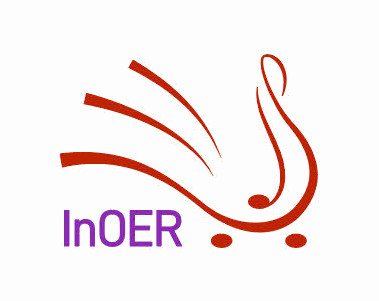Cyber Cynic
June 3, 2009 - 4:59 P.M.
Theo: 03/06/2009
Bài được đưa lênInternet ngày:http://blogs.computerworld.com/the_top_four_linux_netbook_trends#comment
Lờingười dịch: Mặc cho cả thế giới báo chí và truyềnthông hàng ngày ca ngợi, thì thị trường netbook cuối nămnay sẽ chắc chắn được chứng kiến một hệ điềuhành Windows 7 SE què quặt và lạc lõng như thế nào trongthế giới các netbook với GNU/Linux là các hệ điều hànháp đảo với số lượng các ứng dụng chạy trên nó làkhông giới hạn. Miếng bánh của máy tính để bàn chắcchắn sẽ có những thay đổi cho dù Microsoft không bao giờmong muốn.
Tôi có thể theo dõiđủ tất cả các công bố liên quan tới Linux netbook từtriển lãm Computex tuần này, và tôi đi theo thứ này để[kiếm tiền] sống. Vì thế, tôi ngồi xuống và đặt mộtdanh sách mà tôi có thể nắm chắc về những gì sẽ tớivới Linux netbook cho phần còn lại của năm nay. Đây lànhững gì tôi sẽ nêu ra.
1)Moblin 2.0 của Intel, và bây giờ là của cả tổ chứcLinux Foundation nữa, tham gia vào cuộc đua về hệ điềuhành Linux cho netbook dường như sẽ là người chiến thắngsớm. Canonical, với Ubuntu Netbook Remix, Linpus, Novell, RedFlag và Xandros tất cả đều đã thông báo họ sẽ phânphối các phiên bản Moblin của các phát tán của họ chokiến trúc Atom của Intel.
Trong số các nhà phânphối Linux này thì, trong khi Ubuntu có tiếng rì rầm nhiềunhất, thì có vẻ như Novell sẽ đứng đầu thực sự cóđược các hợp đồng được ký với các nhà sản xuấtthiết bị gốc OEM. Nhà cung cấp khổng lồ về máy tínhcá nhân hộp trắng, Acer, dường như sẽ tham gia vàoMoblin theo một con đường lớn, dường như sẽ có mộtvụ làm ăn với Novell. MSI, một nhà cung cấp máy tính cánhân nhỏ hơn, sẽ chắc chắn xuất xưởng SuSE Moblin.Xandros cũng có một quan hệ đối tác với Moblin đi vớiAsus.
Bạn có thể mong đợiđể thấy các Moblin netbook sẽ được bán bắt đầu vàoquý IV năm nay. Theo tính toán của tôi, sẽ có ít nhát 8Moblin netbook xuất xưởng vào cuối năm nay. Tôi sẽ khôngngạc nhiên chút nào dù nếu nó sẽ là nhiều hơn mộttá.
2) Google tiếp tụcrụt rè với Android Linux trên máy tính để bàn, nhưngnetbook đã sẵn sàng trên con đường của nó. Acer lạimột lần nữa đứng đầu ở đây. Hãng này có kế hoạchxuất các máy Aspire One với Android vào quý III. Asus, có lẽdưới áp lực của Microsoft, đã bỏ hỗ trợ cho Androidngay cả dù một đối tác đã chỉ ra một netbook Androidcủa Asus hầu như đã sẵn sàng xuất xưởng.
Còn có vài nhà cungcấp nhỏ chỉ ra các netbook được trang bị Android. Tôidự tính chúng ta sẽ phải chờ cho tới khi Google chínhthức công bố rằng họ đang hỗ trợ Android trên máytính để bàn để thấy được sự đổ xô vào thực sựbắt đầu.
Ican barely keep track of all the Linux netbook-related announcementsf-rom this week's Computex trade show, and I follow this stuff for aliving. So, I sat down and put together a list so I could a grip onwhat's coming up with the Linux netbook for the rest of the year.This is what I came up with.
1)Moblin2.0, Intel's, and now the Linux Foundation's, entry in thenetbook Linux operating system race seems to be the early winner.Canonical, with UbuntuNetbook Remix; Linpus,Novell; RedFlag; and Xandros allannounced they will deliver Moblin versions of their distributionsfor Intel's Atom architecture.
Ofthese Linux distributors while Ubuntu has the most buzz, it lookslike Novell has the lead in actually getting contracts signed withOEMs (original equipment manufacturers). The giant white-box PCvendor, Acer,which seems to be getting into Moblin in a big way, appears tohave a deal with Novell. MSI, asmaller PC vendor, will certainly be shipping SUSE Moblin. Xandrosalso has a Moblin partnership going with Asus.
Youcan expect to see the Moblin netbooks going up for sale by the startof the fourth quarter. By my count, there will be at least eightMoblin netbooks shipping by year's end. I won't be in the least bitsurprised though if it turns out that there will be more than a dozenof them.
2)Google continues to play coy with AndroidLinux on the desktop, but the netbooks are already on their way.Acer in the lead again here. The company plans to ship its AspireOne with Android by the third quarter. Asus, probably underpressuref-rom Microsoft, has backed away f-rom Android even though apartner showed an almost ready-to-go Asus Android netbook.
Therewere also several smaller vendors showing Android-powered netbooks. Iexpect we're going to have to wait until Google formally announcesthat they're supporting Android on the desktop to seethe real rush to begin.
3) Các vi xử lý ARMdường như đang chậm đằng sau họ Atom của Intel. Nóithế này, Asus, compal, Foxconn, HTC (Máy tính kỹ thuật cao),Inventec, Toshiba, và Wistron tất cả đã chỉ ra các thiếtbị được trang bị Snapdragon tại triển lãm này. Nhữnggì tôi thấy là vấn đề của ARM/Snapdragon là việc nóchủ yếu đang chờ đợi Android.
Một khi Google Androidsẽ tới, thì tôi sẽ thấy điểm kết của thị trườngnetbook sẽ bùng nổ. Netbook dưới 200 USD, với pin chạyđược 6 giờ đồng hồ với tên tuổi của Google trên đólà đảm bảo bán như hotdogs trong các trận đấu bóngchày.
4) Máy thu phát đaphương tiện sở hữu độc quyền trên các máy tính đểbàn Linux sẽ chấm hết cho một vấn đề hiện nay đốivới hầu hết mọi người sử dụng. RealNetworks thực sựnghiêm túc về việc trở thành máy chơi đa phương tiệncho các máy tính để bàn Linux. Hãng này, từ lâu đã cungcấp một máy chơi đa phương tiện sở hữu độc quyềnvà nguồn mở, Helix, cho Linux đã công bố một loạt cácquan hệ đối tác.
RealNetworkssẽ đưa máy chơi đa phương tiện sở hữu độc quyềnmới của mình, RealPlayer for Mobile Devices (RealPlayer cho cácthiết bị di động), với các phát tán Linux từ Canonical,Xandros, Phoenix Technologies và DeviceVM. Canonical tất nhiên làcông ty cha của Ubuntu và Xandros là cha của phát tán Linuxcùng tên và người mới là Linux tức thì Presto. Phoenix vàDeviceVM là các công ty đằng sau các phát tán Linux tứcthì như HyperSpace và Splashtop.
RealPlayer cho di độnglàm việc trên các netbook dựa vào cả ARM và Atom. VớiSplashTop đã được cài sẵn trên các máy tính xách tay vànebook mới của Lenovo, Asus, HP và LG, thì máy chơi mới nàysẽ nhanh chóng trở nên sẵn sàng cho người sử dụng ởkhắp mọi nơi. Phiên bản này của RealPlayer sẽ có khảnăng chơi tất cả các định dạng đa phương tiện mởvà các định dạng sở hữu độc quyền phổ biến nhưWindows Media và Apple QuickTime. Tuy nhiên, nó sẽ không cókhả năng chơi Adobe Flash. Đối với điều này, bạn sẽcòn cần Adobe Flash Player cho Linux. Tất nhiên, nếu bạnmuốn một máy tính để bàn Linux mà không có chút nàocủa sở hữu độc quyền trong đó, thì bạn vẫn khôngcần sự may mắn với Adobe Flash Player hoặc RealPlayer chodi động.
3)The ARM processors seem to be lagging behind the Intel Atom family.That said, Asus, Compal, Foxconn, HTC (High Tech Computer), Inventec,Toshiba, and Wistron all showed off Snapdragon-powered devices at theshow. What I see as the ARM/Snapdragon problem is that it's largelywaiting on Android.
OnceGoogle Android arrives, I see this end of the netbook marketexploding. The sub-$200, 6-hour+ battery life netbook with Google'sname on it is sure to sell like hot-dogs at a baseball game
4)Proprietary media playback on Linux desktops will stop being aproblem for most users. RealNetworksis really serious about being themedia-player for Linux desktops. The company, which has long provideda proprietary and open-source media player, Helix,for Linux announced a host of partnerships.
RealNetworkswill be bundling its new proprietary media player, RealPlayerfor Mobile Devices, with Linux distributions f-rom Canonical,Xandros, Phoenix Technologies and DeviceVM. Canonical is, of course,Ubuntu's parent company and Xandros is the father to the Linuxdistribution of the same name and the newer Prestoinstant-on Linux. Phoenix and DeviceVM are the companies behind theembedded, instant-onLinux distributions, HyperSpace, and Splashtop.
RealPlayerfor Mobile works on both ARM-based and Intel Atom-powered netbooks.With SplashTop already pre-installed on newer Lenovo, Asus, HP, andLG notebooks and netbooks, this new player will quickly becomeavailable to users everywhe-re. This version of RealPlayer will beable to play all open media formats and such popular proprietaryformats as Windows Media and Apple QuickTime. It will not, however,be able to play Adobe Flash. For that, you'll still need the AdobeFlash Player for Linux. Of course, if you want a desktop Linuxwithout proprietary bits in it, you're still out of luck with eitherthe Adobe Flash Player or RealPlayer for Mobile.
Tất tần tật, tôithấy các Linux netbook cải tạo phần thấp cáp của thịtrường máy tính cá nhân vào cuối năm nay. Windows7 SE (Starter Edition), phiên bản netbook Windows de facto, làphần mềm què quặt ngay cả với khả năng chạy vớinhiều hơn 3 ứng dụng.
Sau tất cả, Windows 7SE sẽ không đi cùng với Aero Glass; một máy tính để bàntừ xa; miền mạng hoặc hỗ trợ của thư mục tích cực(AD); khả năng chơi DVD, chạy ở chế độ XP, hoặc hỗtrợ BitLocker/BitLocker để được mã hoá. Ô, và bạn cóthể chỉ có nó trên một hệ thống với một con vi xửlý mà nó không nhanh hơn 2GHZ, không có nhiều hơn 250GB ởchứa, có thể không có nhiều hơn là 1GB bộ nhớ, và nókhông thể có một màn hình lớn hơn 10.2 inch.
Khi mà mọi netbookLinux đều sẽ rẻ hơn Windows 7 SE và nó có thể làm bấtkỳ thứ gì mà phiên bản đầy đủ của Windows 7 có thểlàm – ngay cả bao gồm việc chạy XP trong một máy ảomà nó là những gì các chế độ chạy XP có – sẽ cótừng lý do cho Linux để nắm lấy một cú cắn thực sựvào thị trường máy tính để bàn.
Takenall-in-all, I see Linux netbooks reclaiming the low-end of the PCmarket by year's end. Windows 7 SE (Starter Edition), the de factoWindows netbook version, is crippleware even with the ability to runwith morethan three applications.
Afterall, Win 7 SE doesn't come with Aero Glass; a remote desktop; networkdomain or AD (Active Directory) support; the ability to play DVDs,run XP mode, or support BitLocker/BitLocker to Go encryption. Oh, andyou can only get it on a system with a processor that's no fasterthan 2GHz, doesn't have more than 250GBs of storage, can have no morethan a Gig of memory, and it can't have a screen bigger than 10.2".
Sinceany netbook Linux should be cheaper than Windows 7 SE and it can doeverything the full version of Windows 7 can do-even includingrunning XP in a virtual machine which is what XP Mode amountsto-there's every reason for Linux to take a real bite out of thedesktop market.
Dịch tài liệu: LêTrung Nghĩa
Ý kiến bạn đọc
Những tin mới hơn
Blog này được chuyển đổi từ http://blog.yahoo.com/letrungnghia trên Yahoo Blog sang sử dụng NukeViet sau khi Yahoo Blog đóng cửa tại Việt Nam ngày 17/01/2013.Kể từ ngày 07/02/2013, thông tin trên Blog được cập nhật tiếp tục trở lại với sự hỗ trợ kỹ thuật và đặt chỗ hosting của nhóm phát triển...
 DigComp 3.0: Khung năng lực số châu Âu
DigComp 3.0: Khung năng lực số châu Âu
 Các bài toàn văn trong năm 2025
Các bài toàn văn trong năm 2025
 Các bài trình chiếu trong năm 2025
Các bài trình chiếu trong năm 2025
 Các lớp tập huấn thực hành ‘Khai thác tài nguyên giáo dục mở’ tới hết năm 2025
Các lớp tập huấn thực hành ‘Khai thác tài nguyên giáo dục mở’ tới hết năm 2025
 Tập huấn thực hành ‘Khai thác tài nguyên giáo dục mở’ cho giáo viên phổ thông, bao gồm cả giáo viên tiểu học và mầm non tới hết năm 2025
Tập huấn thực hành ‘Khai thác tài nguyên giáo dục mở’ cho giáo viên phổ thông, bao gồm cả giáo viên tiểu học và mầm non tới hết năm 2025
 Các tài liệu dịch sang tiếng Việt tới hết năm 2025
Các tài liệu dịch sang tiếng Việt tới hết năm 2025
 Loạt bài về AI và AI Nguồn Mở: Công cụ AI; Dự án AI Nguồn Mở; LLM Nguồn Mở; Kỹ thuật lời nhắc;
Loạt bài về AI và AI Nguồn Mở: Công cụ AI; Dự án AI Nguồn Mở; LLM Nguồn Mở; Kỹ thuật lời nhắc;
 Tổng hợp các bài của Nhóm các Nhà cấp vốn Nghiên cứu Mở (ORFG) đã được dịch sang tiếng Việt
Tổng hợp các bài của Nhóm các Nhà cấp vốn Nghiên cứu Mở (ORFG) đã được dịch sang tiếng Việt
 Tổng hợp các bài của Liên minh S (cOAlition S) đã được dịch sang tiếng Việt
Tổng hợp các bài của Liên minh S (cOAlition S) đã được dịch sang tiếng Việt
 Năm Khoa học Mở & Chuyển đổi sang Khoa học Mở - Tổng hợp các bài liên quan
Năm Khoa học Mở & Chuyển đổi sang Khoa học Mở - Tổng hợp các bài liên quan
 Bàn về 'Lợi thế của doanh nghiệp Việt là dữ liệu Việt, bài toán Việt' - bài phát biểu của Bộ trưởng Nguyễn Mạnh Hùng ngày 21/08/2025
Bàn về 'Lợi thế của doanh nghiệp Việt là dữ liệu Việt, bài toán Việt' - bài phát biểu của Bộ trưởng Nguyễn Mạnh Hùng ngày 21/08/2025
 ‘KHUYẾN NGHỊ VÀ HƯỚNG DẪN TRUY CẬP MỞ KIM CƯƠNG cho các cơ sở, nhà cấp vốn, nhà bảo trợ, nhà tài trợ, và nhà hoạch định chính sách’ - bản dịch sang tiếng Việt
‘KHUYẾN NGHỊ VÀ HƯỚNG DẪN TRUY CẬP MỞ KIM CƯƠNG cho các cơ sở, nhà cấp vốn, nhà bảo trợ, nhà tài trợ, và nhà hoạch định chính sách’ - bản dịch sang tiếng Việt
 50 công cụ AI tốt nhất cho năm 2025 (Đã thử và kiểm nghiệm)
50 công cụ AI tốt nhất cho năm 2025 (Đã thử và kiểm nghiệm)
 ‘Đặc tả Khung Tính mở Mô hình (MOF)’ của LF AI & Data - Tài sản chung của AI Tạo sinh - bản dịch sang tiếng Việt
‘Đặc tả Khung Tính mở Mô hình (MOF)’ của LF AI & Data - Tài sản chung của AI Tạo sinh - bản dịch sang tiếng Việt
 ‘LỘ TRÌNH CỦA TỔNG THƯ KÝ LIÊN HIỆP QUỐC VỀ HỢP TÁC KỸ THUẬT SỐ THÚC ĐẨY HÀNG HÓA CÔNG CỘNG KỸ THUẬT SỐ’ - bản dịch sang tiếng Việt
‘LỘ TRÌNH CỦA TỔNG THƯ KÝ LIÊN HIỆP QUỐC VỀ HỢP TÁC KỸ THUẬT SỐ THÚC ĐẨY HÀNG HÓA CÔNG CỘNG KỸ THUẬT SỐ’ - bản dịch sang tiếng Việt
 AI trong TVET - Một vài gợi ý triển khai trong thực tế
AI trong TVET - Một vài gợi ý triển khai trong thực tế
 Tọa đàm ‘Vai trò của Tài nguyên Giáo dục Mở trong chuyển đổi số giáo dục đại học’ tại Viện Chuyển đổi số và Học liệu - Đại học Huế, ngày 12/09/2025
Tọa đàm ‘Vai trò của Tài nguyên Giáo dục Mở trong chuyển đổi số giáo dục đại học’ tại Viện Chuyển đổi số và Học liệu - Đại học Huế, ngày 12/09/2025
 ‘Hiệp ước Kỹ thuật số Toàn cầu’ của Liên hiệp quốc - bản dịch sang tiếng Việt
‘Hiệp ước Kỹ thuật số Toàn cầu’ của Liên hiệp quốc - bản dịch sang tiếng Việt
 12 dự án AI Nguồn Mở hàng đầu để bổ sung vào kho công nghệ của bạn. 11. Hugging Face Transformers
12 dự án AI Nguồn Mở hàng đầu để bổ sung vào kho công nghệ của bạn. 11. Hugging Face Transformers
 Dự án DIAMAS đưa ra Khuyến nghị và Hướng dẫn Truy cập Mở Kim cương
Dự án DIAMAS đưa ra Khuyến nghị và Hướng dẫn Truy cập Mở Kim cương
 50 công cụ AI tốt nhất cho năm 2025 (Đã thử và kiểm nghiệm) - Trợ lý AI tốt nhất (chatbots)
50 công cụ AI tốt nhất cho năm 2025 (Đã thử và kiểm nghiệm) - Trợ lý AI tốt nhất (chatbots)
 Hướng dẫn kỹ thuật lời nhắc. Kỹ thuật viết lời nhắc. Lời nhắc Tái Hành động (ReAct)
Hướng dẫn kỹ thuật lời nhắc. Kỹ thuật viết lời nhắc. Lời nhắc Tái Hành động (ReAct)
 50 công cụ AI tốt nhất cho năm 2025 (Đã thử và kiểm nghiệm) - Trình tạo nhạc AI tốt nhất
50 công cụ AI tốt nhất cho năm 2025 (Đã thử và kiểm nghiệm) - Trình tạo nhạc AI tốt nhất
 Nâng cao tính mở và khả năng sử dụng của Hàng hóa Công cộng Kỹ thuật số bằng cách chỉ chấp nhận các bộ sưu tập nội dung và bộ dữ liệu hoàn toàn được cấp phép mở
Nâng cao tính mở và khả năng sử dụng của Hàng hóa Công cộng Kỹ thuật số bằng cách chỉ chấp nhận các bộ sưu tập nội dung và bộ dữ liệu hoàn toàn được cấp phép mở
 Vì sao Singapore đang xây dựng hàng hóa công cộng kỹ thuật số
Vì sao Singapore đang xây dựng hàng hóa công cộng kỹ thuật số
 50 công cụ AI tốt nhất cho năm 2025 (Đã thử và kiểm nghiệm) - Công cụ AI quản lý kiến thức tốt nhất
50 công cụ AI tốt nhất cho năm 2025 (Đã thử và kiểm nghiệm) - Công cụ AI quản lý kiến thức tốt nhất
 Hiểu các giấy phép CC và đào tạo AI: Một tóm tắt về pháp lý
Hiểu các giấy phép CC và đào tạo AI: Một tóm tắt về pháp lý
 Chiến lược 2023-2028 của DPGA
Chiến lược 2023-2028 của DPGA
 Hướng dẫn nghiên cứu của khoa về ChatGPT và các công cụ AI
Hướng dẫn nghiên cứu của khoa về ChatGPT và các công cụ AI
 ‘Từ nội dung của con người đến dữ liệu của máy móc. Giới thiệu tín hiệu CC’ - bản dịch sang tiếng Việt
‘Từ nội dung của con người đến dữ liệu của máy móc. Giới thiệu tín hiệu CC’ - bản dịch sang tiếng Việt